Paving the way 铺路
中国日报网 2018-08-07 13:07

Reader question:
Please explain this sentence, “paved the way” in particular: She paved the way for women to wear menswear as their own.
My comments:
It means she was the first or amongst the first to wear menswear, trousers, for instance, instead of skirts, sneakers instead of high heels.
In other words, she was a pioneer. She cleared a path for others to follow.
Now every woman (everyone on the catwalk, at least) feel comfortable wearing menswear or clothes similar to men’s clothing in style.
Here in Beijing, we often see the street get repaved with asphalt, in some places seemingly every year. The newly repaved street is level and even, making life much easier for travelers.
In the early days, of course, roads were rough, covered with mud or gravel, tiny stones. Still, muddy or gravel roads were better than none.
For in the beginning, of course, there were no roads. The first people who travelled a certain route had to pick and choose their way, amongst wild trees, thick grass and etcetera.
With great difficulty, no doubt.
Blazing a trail, that’s also called. The early path finders would have to slash and burn, cutting off weeds and branches and making marks on tall trees by peeling off their bark. Things like that. All of this work helped to make it easier for later comers who follow their lead.
That’s the idea of someone paving the road for someone else. They bear the hardship and set the stage and make it easy for upcomers.
Similarly, something may pave the way for something else and that means they help make it happen, by putting things and components together or by being an initiator, a facilitator, an instigator, a prime mover.
Okay, here are media examples of “paving the way”:
1. Former Secretary of State Hillary Clinton has cemented herself in history, earning more than enough delegates to secure the Democratic presidential nomination. But before Clinton’s historic moment, Congresswoman Shirley Chisholm paved the way with her presidential campaign in 1972.
In 1968, Chisholm became the first African-American woman elected to Congress, representing New York’s 12th Congressional District for seven terms from 1969 to 1983.
In 1972, she became the first major party Black candidate to run for President of the United States, and the first woman ever to run for the Democratic Party’s presidential nomination.
On Thursday, Dr. E. Faye Williams, president and CEO of National Congress of Black Women, and filmmaker Shola Lynch, producer of the documentary Chisholm ’72: Unbought & Unbossed, joined Roland Martin on NewsOne Now to discuss Hillary’s political milestone and how Chisholm made it possible decades earlier.
Dr. Williams explained that Chisholm was a “catalyst for change,” and when she looks at what is happening with the Democratic Party and “Hillary Clinton cracking that glass ceiling,” she thought of Chisholm.
Dr. Williams said, “It was Shirley Chisholm who brought us to where we are. First of all, she paved the way for President Obama as well as (for) Hillary Clinton.
“Whatever Hillary Clinton is doing today, she can thank Shirley Chisholm for that.”
Lynch told Martin what often gets lost about Chisholm’s campaign is her “political strategy.” According to Lynch, Chisholm understood leverage and “did not wait her turn.”
“She acted on her conscience and she was a very progressive candidate –she was unbought and unbossed,” added Lynch.
- ‘Unbought & Unbossed:’ Shirley Chisholm Paved The Way For Hillary Clinton, NewsOne.com, June 9, 2016.
2. Three years ago, a Supreme Court ruling paved the way for gay marriage.
After it, the mainstream media had one question: What was next for the lesbian, gay, bisexual and transgender movement? They had, after all, won the big fight. In addition, many corporations had adopted policies barring discrimination based on sexual orientation, and two of America’s most watched shows at the time “Modern Family” and “Glee” featured openly gay characters.
“I really do believe [the Supreme Court ruling] is the domino that is going to tip over the rest of the dominoes,” Wilson Cruz, an LGBT activist, told CNN at the time. “Do not get in the way of this train, because it will run you over.”
To ensure things ran full-steam ahead, billionaire George Soros, through his Foundation to Promote Open Society, dedicated at least $2.7 million to the cause that year, according to his tax returns.
Some Republicans at the time mistakenly thought the LGBT movement had reached its pinnacle, that the culture wars had ended. They thought the party could now focus on fiscal concerns, which weren’t nearly as divisive.
But that was foolish — the LGBT movement was just getting fired up, and Soros-affiliated groups were already plotting their next prize.
It took two-plus years, but seemingly out of nowhere to many conservatives, the transgender bathroom debate exploded this summer after North Carolina legislators passed a bill that required people to use bathrooms matching their sex assigned at birth. The Justice Department intervened, calling such a law a violation of the Civil Rights Act, and the media went wild — it was their new civil rights movement.
- The money behind the transgender movement, WashingtonTimes.com, August 11, 2016.
3. Hall of Fame point guard Tiny Archibald knew the health statistics of retired professional basketball players were alarming, but what prompted him to probe his own medical history was far more personal.
“Everyone around me kept dying,” Archibald says. “And they were all younger than me.”
There was Moses Malone, struck down by a heart ailment at 60. Darryl Dawkins, a heart attack at 58. Dwayne “Pearl” Washington -- who, like Archibald, refined his game on the blacktops of New York City -- gone from cancer at 52.
Archibald felt confident he had no major health issues -- other than, of course, the residual aches and pains of an Achilles tear, a separated shoulder and arthroscopic surgery on both knees, all accumulated over a 14-year career. But the 6-foot-1 former guard was 68 years old. And knowledge, he figured, was power.
He perused the numbers from the free screenings conducted by the National Basketball Players Association: More than 35 percent of retired players aged 40 to 59 had high blood pressure; nearly 50 percent of players over the age of 40 were prediabetic; more than 30 percent of the players screened were considered obese. And then there was this: 20 percent of the players over 60 had overt diabetes, and all of those players were African-American.
“So I decided to go in,”' Archibald says. “I’m thinking, ‘OK, ordinary, routine blood work.’ I came out in shock mode.”
Archibald’s tests revealed there was an issue with his heart. It was the kind of result that has been a hallmark of the program, alerting aging players to conditions they didn’t know they had. In some cases, those issues require simple steps to improve or eradicate the problem.
Yet, in a cruel twist, the disease that had seeped into Archibald’s heart was different.
His condition -- amyloidosis -- was incurable.
…
IN JULY 2016, just five months before Archibald’s screening, NBA players, in conjunction with the NBA, voted to set aside millions to fund health insurance for retired players with at least three years of NBA experience. Coverage began in January 2017.
In addition, the players’ association set up free nationwide health screenings, which unearthed numerous cases of hypertension, atrial fibrillation, high glucose and cholesterol levels, sleep apnea, diabetes, even Marfan syndrome.
“If I saw Chris Paul, LeBron, D-Wade and those guys, I’d give them a squeeze,” Archibald says. “I would love to thank them personally, but I’m sure they don’t even know who I am. I was playing before they were born.”
He’s wrong, of course. Ask around in today’s NBA, and you find many stars well-versed in the story of Tiny Archibald -- an undersized talent in a big man’s game. A second-round pick, he became, during the 1972-73 season for the Kansas City-Omaha Kings, the first player in league history to lead the NBA in scoring (34 PPG) and assists (11.4 APG). Archibald won his only championship in 1981 with the Celtics alongside a forward by the name of Larry Joe Bird.
When asked about Archibald, Heat guard Dwyane Wade rattles off a number of his attributes, punctuating it with, “He’s one of those little guys that nobody could stop.” It’s a history that the new generation of stars -- almost universally better-compensated than their NBA forefathers -- insist they value. And so, Wade says, the decision to assist the retired players with health benefits was never a question of “if,” but “when.”
“When you start coming to end of your career, you start thinking about your legacy,” Wade says. “LeBron and I talked a lot about these great players who came before us, and how they paved the way for us to have such amazing and successful careers. So it becomes something you’d like to pay forward.”
Wade says it was Heat president Pat Riley who first exemplified to him why the health-care initiative was so critical to retired players. Riley maintains impeccable conditioning and requires all Heat players to undergo regular body-fat testing. Yet even he couldn’t fend off the pounding his body absorbed as an NBA journeyman.
“Pat wasn’t a superstar or anything, and he didn’t even play in the league all that long,” Wade says, “but I’ve watched him deal with all the ailments as he’s gotten older. He would tell us, ‘I’m lucky. I can afford to have these procedures done by the best doctors. Many of the guys I played with don’t have the means for that.’”
When Archibald retired, he resolved to avoid the pitfalls of obesity by staying active and watching his diet. He delighted in his contemporaries telling him, “You look like you could still play.” Now his health regimen includes making regular visits to New York-Presbyterian Hospital and volunteering for clinical trials designed to find a cure -- or at least a treatment to corral the disease.
“If not for today’s players,” Archibald says, “I don’t think a lot of us old guys would be here today. It used to be when someone passed, it was, ‘Oh, he died,’ and that’s it.
“Now we’re able to pinpoint why they are gone and realize, ‘This could have been avoided.’ I want to thank them for that. They are saving us.”
- How the worst news of Tiny Archibald’s life will impact today’s NBA stars, ESPN.com, February 20, 2018.
本文仅代表作者本人观点,与本网立场无关。欢迎大家讨论学术问题,尊重他人,禁止人身攻击和发布一切违反国家现行法律法规的内容。
About the author:
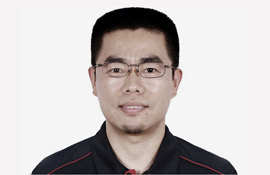
Zhang Xin is Trainer at chinadaily.com.cn. He has been with China Daily since 1988, when he graduated from Beijing Foreign Studies University. Write him at: zhangxin@chinadaily.com.cn, or raise a question for potential use in a future column.
(作者:张欣 编辑:丹妮)









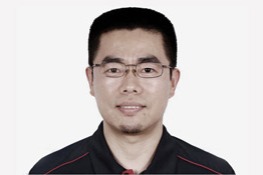
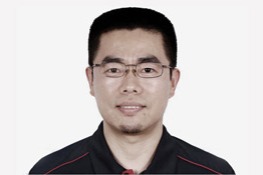
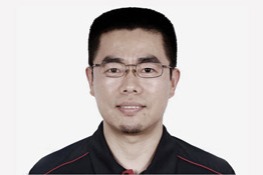
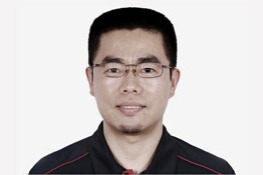
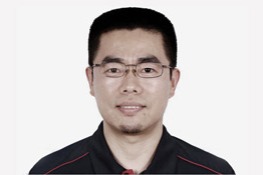



 英语点津微信
英语点津微信 双语小程序
双语小程序